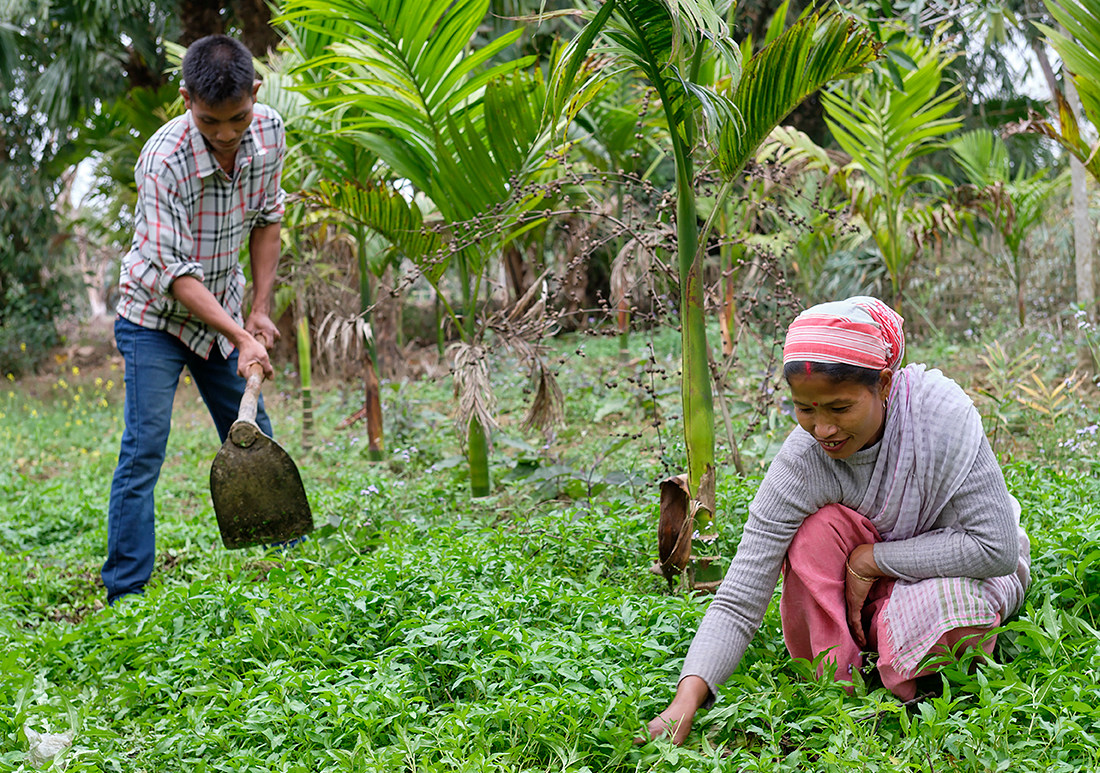
Evidence suggests that the COVID-19 pandemic has exacerbated malnutrition and worsened socio-economic conditions, particularly among women. Some reports suggest declining food diversity, decreased food intake, and periodic episodes of missed meals. According to a recently published report, 90 percent of households surveyed reported reduced food intake in 2020, and even six months later about 20 percent still reported a similar trend. Data also suggests that COVID-19 is having a prolonged impact on rural communities through lost livelihoods and economic opportunities. To address the impacts of COVID-19 in Assam, India, USAID Advancing aims to improve diets through the implementation of nutrition-sensitive agriculture activities.
Nutrition-sensitive agriculture offers dual pathways to improving diets and nutrition through the activities that increase diverse, nutritious foods for consumption and the economic opportunities that increase income for purchasing diverse, nutritious foods. Evidence suggests that nutrition-sensitive agriculture, particularly in the Indian context, can provide a pathway to improving diets and nutrition through a convergence of activities to strengthen production approaches and behaviors that guide intra-household distribution and consumption of foods, especially among women and children.
Between 2022 and 2023, USAID Advancing Nutrition is implementing a variety of nutrition-sensitive agriculture activities through local actors to spur increased productivity for increased incomes and consumption. Specifically, the project is implementing horticulture and aquaculture trainings with female producers that are members of local, women-self help groups (WSHGs) through a local implementing partner. USAID Advancing Nutrition is pulling on subject matter expertise of local actors, such as the department of fisheries under the Assam State Rural Livelihoods Mission (ASRLM) or from other USAID investments (Scaling Innovative, Nutrition-Sensitive Fisheries Technologies and Integrated Approaches through Partnerships in Odisha, India project) to design training material and train a community cadres to cascade trainings to women. As of May 2023, the project has trained 16,251 female producers on horticulture productivity, with messages on dietary diversity and women’s empowerment integrated throughout. In 2023, the project is also implementing several private sector engagement activities that aim to increase producers’ access to key agricultural inputs, markets, and pull on productivity.